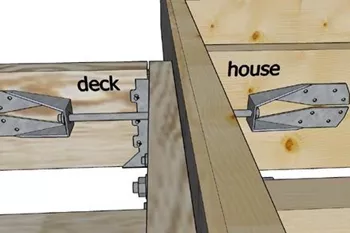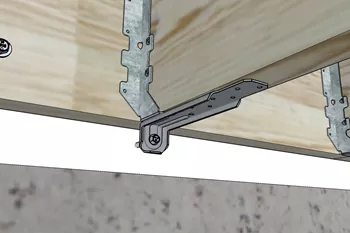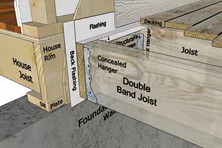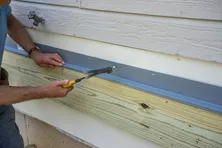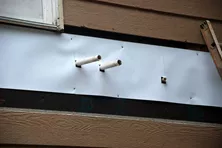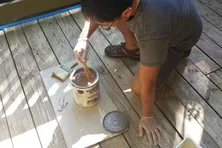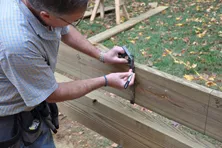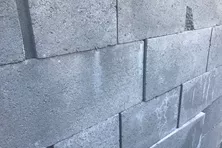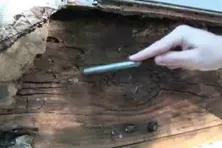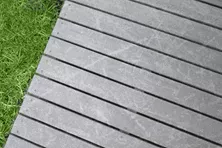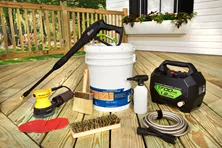Lateral Load Connector Device
Under the current code, you will most likely be required to install a positive connection to the house wall to resist lateral loads. Lateral loads can result from earthquakes or from people moving around on your deck. In severe cases, these loads can result in the ledger board being ripped from the house wall and collapsing.
Another method involves installing hold downs to the side of a house floor joist and attaching it to another hold down installed on the side of one of your deck joists with a threaded rod. Some wood or engineered I-joist manufacturers have developed details for this type of attachment to their products. This method is much more difficult than using the DTT1Z connnection because it involves an attachment through the house wall. It is often difficult to gain access to the interior floor system of your house to make this option user-friendly.
The easiest way to ensure your ledger board connection will satisfy this requirement is to install 4 hold down devices. You will need to pre-drill and attach this connector to the solid house rim with a 3/8" diameter, fully threaded lag screw so that it has a minimum 3" penetration to the center of the top plate, studs or header. This L-shaped hold down bracket is then screwed to the bottom of the deck joist. The hold down device will have a minimum 750 lb capacity at 4 locations evenly distributed along the deck and 1 within 2' of each end of the ledger board. Always follow the manufacturer's installation instructions when installing deck hardware.
Attaching the Ledger Board to the House Rim
Learn how to properly install a waterproof ledger board using flashing and fasteners. Check out our step-by-step video and detail drawings.
Ledger Board Fasteners
Compare types of deck ledger board fasteners like lag bolts, through bolts & structural screws. Learn how to choose the right fastener for your ledger board.
Vents, Pipes and Spigots
How do you install a deck ledger board around vents, pipes and spigots? We offer two solutions that can solve your problem.
How to Seal Your Deck & Best Deck Sealers
Once you clean or stain a deck, it is ready to be sealed. Learn how to properly seal your deck in order to protect it from damage caused by harsh climates and weather at Decks.com.
Deck Maintenance Checklist
Wondering how to best care for your deck? Download our comprehensive deck maintenance checklist to ensure your deck is safe and lasts for years at Decks.com.
More Helpful Resources
Explore Articles by Topic
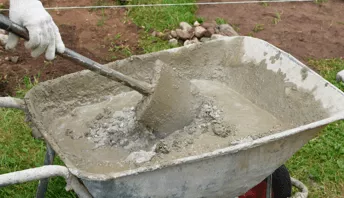
Footings
Information related to installing frost footings for decks
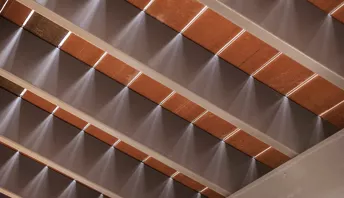
Framing
Learn structural framing methods
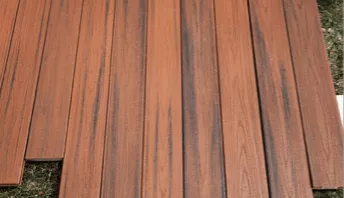
Decking
Learn about wood and composite decking materials
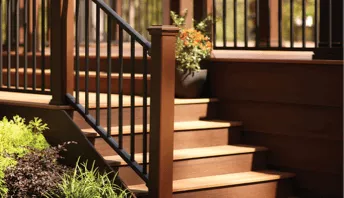
Stairs
An in-depth look at the complex issue of how to build stairs
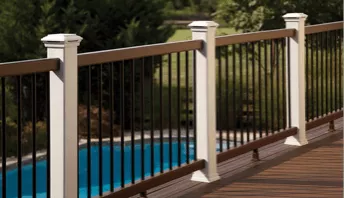
Railings
How to install guardrails and handrails to meet IRC code

Features
An overview on water drainage, benches, planters and lights
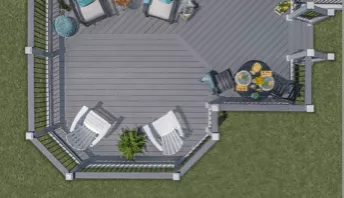
Design
The basics of deck design
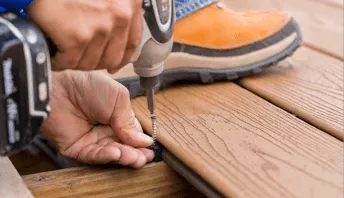
Planning
Learn about permits and working with contractors
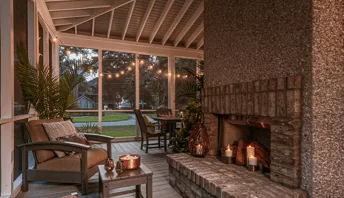
Porches & Patios
Build a covered deck to enjoy all seasons
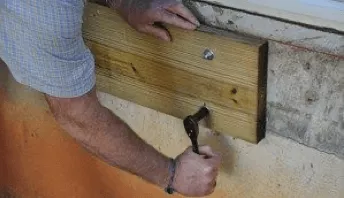
Ledger
Proper attachment techniques
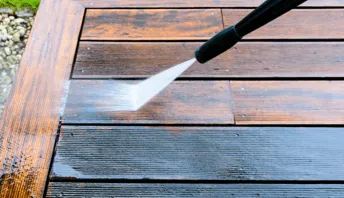
Care
Maintain your deck to maintain your investment
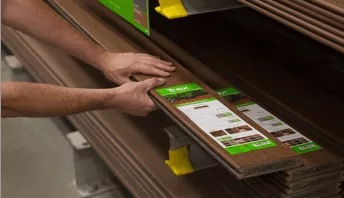
Materials
An overview on water drainage, benches, planters and lights
Attaching the ledger board to hollow block
Our inspector discusses how to attach a deck to a hollow concrete block foundation wall.
Checking House Framing
Make sure your house frame is solid and in good condition before installing a deck ledger board. We list some problem areas to look for before building.
Vents, Pipes and Spigots
How do you install a deck ledger board around vents, pipes and spigots? We offer two solutions that can solve your problem.
How to Remove Scuffs and Scratches from Composite Decking
Removing scuffs and scratches can help make your composite deck look like new. Learn how to fix and prevent your composite deck from future scratches.
Average Cost to Stain a Deck
Find the national average costs for staining and sealing a deck per square foot, including sanding and power washing prices. Learn more at Decks.com
Explore Articles by Topic

Footings
Information related to installing frost footings for decks

Framing
Learn structural framing methods

Decking
Learn about wood and composite decking materials

Stairs
An in-depth look at the complex issue of how to build stairs

Railings
How to install guardrails and handrails to meet IRC code

Features
An overview on water drainage, benches, planters and lights

Design
The basics of deck design

Planning
Learn about permits and working with contractors

Porches & Patios
Build a covered deck to enjoy all seasons

Ledger
Proper attachment techniques

Care
Maintain your deck to maintain your investment

Materials
An overview on water drainage, benches, planters and lights




